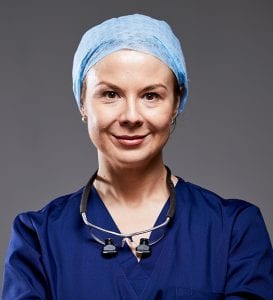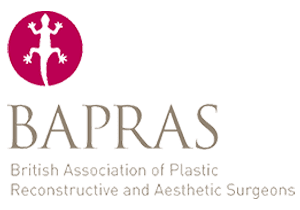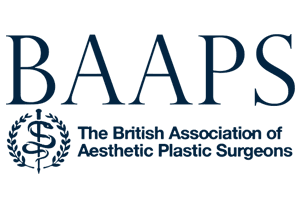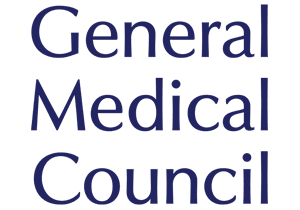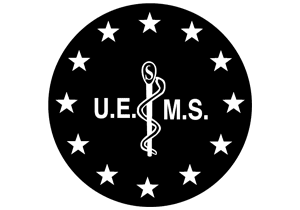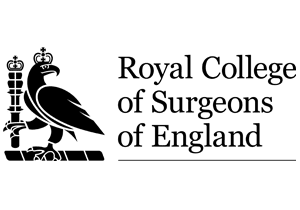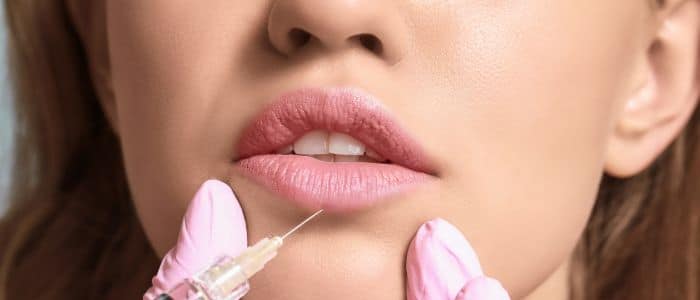
Table of Contents
- Swelling after Lip Fillers – Causes and Solutions
- Why Does Swelling Occur After Lip Fillers?
- Immediate Post-Procedure Care after Lip Fillers
- Lifestyle Adjustments after Getting Lip Fillers
- Medications and Supplements
- Massage Technique to Reduce Swelling after Lip Fillers
- What to Avoid to Reduce Swelling after Lip Fillers
- When to Seek Medical Attention
- FAQs about Lip Fillers
- Further Reading about Injectables with Consultant Plastic Surgeon Anca Breahna
Swelling after Lip Fillers – Causes and Solutions
In recent years, lip fillers have surged in popularity, becoming a sought-after cosmetic procedure for those desiring fuller, plumper lips. As with any cosmetic treatment, it’s essential to understand the post-procedure process. One of the most common side effects after receiving lip fillers is swelling. While this is a natural and expected response, it can be concerning for many, especially if it’s their first time undergoing the procedure. The good news is that with the right care and knowledge, you can effectively manage and reduce this swelling, ensuring a smoother recovery and beautiful results. In this blog, we’ll discuss the steps you can take to minimise swelling and ensure your lips heal perfectly.
Consultant Plastic Surgeon Anca Breahna, a renowned name at Cheshire Cosmetic Surgery, has carved a niche for herself in the world of aesthetic medicine. With a keen eye for detail and an unwavering commitment to excellence, Anca Breahna offers a comprehensive range of both surgical and non-surgical solutions tailored to meet the unique needs of each patient.
Why Does Swelling Occur After Lip Fillers?
Swelling, in the context of lip fillers, is the body’s natural response to a foreign substance being introduced. When lip fillers are injected, they can cause a temporary disruption to the tissue, leading to an influx of blood and other fluids to the area. This is the body’s way of initiating the healing process. The filler material, often made of hyaluronic acid, attracts water molecules, which can also contribute to the initial puffiness.
It’s crucial to differentiate between typical post-procedure swelling and potential signs of complications. Normal swelling tends to be even, affecting both lips, and will usually peak within 48 hours before gradually subsiding over the next few days. On the other hand, signs of complications might include excessive swelling that doesn’t reduce after a few days, uneven swelling, severe pain, bluish discolouration (indicating a vascular issue), or the presence of lumps. If any of these symptoms are observed, it’s essential to seek medical attention promptly, as they could indicate an allergic reaction, infection, or other complications.
Immediate Post-Procedure Care after Lip Fillers
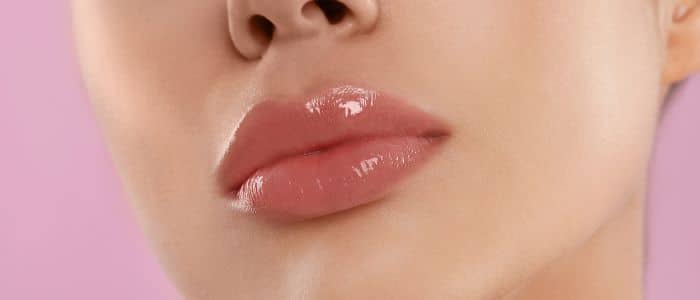
After receiving lip fillers, the initial hours and days are crucial in determining how well the lips heal and how pronounced the swelling will be. Here are some immediate post-procedure care tips to help manage and reduce swelling:
- Cold Compress: Gently applying a cold compress or a cloth-wrapped ice pack can significantly reduce swelling. The cold helps constrict the blood vessels, reducing the flow of blood and other fluids to the area. It is essential to avoid placing ice directly on the lips, as this can cause frostbite or damage the filler
- Elevation: Keeping the head elevated, especially during the first night, can prevent fluids from accumulating in the lip area. Using an extra pillow or two can help achieve this
- Avoiding Hot Temperatures: Exposure to heat can increase blood flow, potentially exacerbating swelling. It’s recommended to steer clear of hot showers, saunas, steam rooms, and direct sunlight for the first couple of days post-procedure
Lifestyle Adjustments after Getting Lip Fillers
The days following a lip filler procedure aren’t just about immediate care; they also involve making certain lifestyle adjustments to ensure optimal healing and minimal swelling. Here are some recommendations to consider:
- Stay Hydrated: Drinking plenty of water can aid in reducing swelling. Hydration helps flush out toxins and maintains the skin’s elasticity. While the filler itself attracts water, ensuring your body is well-hydrated can balance out and reduce excessive puffiness
- Limit Salt Intake: Consuming high amounts of salt can lead to water retention, which can exacerbate swelling. It’s advisable to cut down on salty foods and snacks, especially in the first few days after the procedure
- Avoid Strenuous Exercise: While staying active is generally beneficial, it’s best to avoid intense workouts for at least 24-48 hours post-procedure. Intense exercise can increase blood flow, potentially leading to increased swelling in the treated area
Medications and Supplements
Here are some aspects to keep in mind when it comes to medication after getting lip fillers:
- Over-the-Counter Pain Relievers: Non-prescription pain relievers like acetaminophen can be taken to manage pain and discomfort. Make sure to avoid NSAIDs (Non-Steroidal Anti-Inflammatory Drugs) like aspirin or ibuprofen, as they can increase the risk of bruising and bleeding
- Avoid Blood Thinners: If you’re on medications that thin the blood, it’s crucial to discuss this with your practitioner before the procedure. Blood thinners can increase the risk of bruising and prolonged swelling
- Arnica and Bromelain: These natural supplements are often recommended post-cosmetic procedures. Arnica can help reduce bruising and swelling, while bromelain, an enzyme found in pineapples, can help with inflammation. Always consult with a professional before starting any new supplements
Massage Technique to Reduce Swelling after Lip Fillers
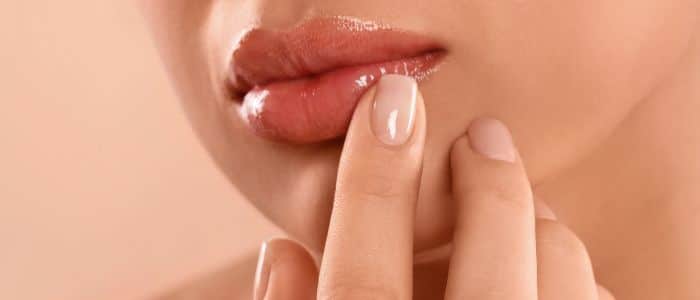
Massaging the lips post-filler treatment can be beneficial, but it’s essential to approach it with care and knowledge. Here are some details to help you understand the role of massage in the post-filler phase:
- Benefits of Gentle Massage: A light massage can help distribute the filler evenly, preventing the formation of lumps or unevenness. It can also promote circulation, aiding in the reduction of swelling and facilitating faster healing
- When to Start: It’s generally recommended to wait at least 24 hours post-procedure before starting any massage to avoid disrupting the filler. Always consult with your practitioner about the best time to begin
- How to Massage: Use clean fingers to apply gentle pressure, moving in circular motions. Ensure the touch is light to avoid causing any damage or moving the filler to an undesired area
- Precautions: Avoid aggressive or prolonged massaging. If you feel any unusual pain, lumps, or if the swelling increases post-massage, it’s essential to stop immediately and consult with your practitioner
Incorporating a gentle massage technique can be beneficial, but it’s always crucial to listen to your body and seek guidance from your cosmetic professional to ensure the best results.
What to Avoid to Reduce Swelling after Lip Fillers
Post-lip filler care isn’t just about what you should do; it’s equally about what you shouldn’t. Certain activities and substances can exacerbate swelling, increase the risk of complications, or negatively impact the results. Here’s a list of things to steer clear of in the days following your procedure:
- Alcohol and Caffeine: Both alcohol and caffeine can dehydrate the body. Dehydration can intensify swelling and prolong the recovery process. It’s advisable to limit or avoid consumption of alcoholic beverages and caffeine-rich drinks for at least 24-48 hours post-procedure
- Touching or Poking: It’s natural to be curious about the feel of your newly filled lips, but excessive touching, poking, or even pressing can disrupt the filler, leading to unevenness or increased swelling
- Makeup: Applying makeup, especially lip products, can introduce bacteria to the treated area, increasing the risk of infection. It’s best to wait at least 24 hours before applying any makeup, and when you do, ensure all products and applicators are clean
- Spicy Foods: Spicy foods can increase blood flow to the lips, potentially exacerbating swelling. It’s a good idea to avoid them for a couple of days post-treatment
- Direct Sunlight and Tanning Beds: UV exposure can cause inflammation and may affect the longevity of the filler. Protect your lips with a lip balm containing SPF and avoid direct sun exposure or tanning beds for at least a week
By being aware of these potential pitfalls and avoiding them, you can ensure a smoother recovery and better results from your lip filler procedure.
When to Seek Medical Attention
While swelling and mild discomfort are typical post-lip filler side effects, it’s crucial to recognise when these symptoms might indicate a more serious issue. Seek medical attention if you are confronted with these:
- Excessive Swelling: While some swelling is expected, if it becomes severe or doesn’t start to subside after 72 hours, it might be a cause for concern
- Severe Pain: Mild discomfort or tenderness is normal, but if you experience severe pain or if the pain increases rather than decreases over time, it’s essential to consult a medical professional
- Bluish Discolouration: A blue or purple tint, especially if it’s accompanied by pain, might indicate a vascular issue, such as a vascular occlusion. This requires immediate medical attention
- Lumps or Bumps: While minor irregularities can be massaged out, persistent lumps or bumps, especially if they’re painful, should be checked by your practitioner
- Signs of Infection: Symptoms like increased redness, warmth, pus, or a fever might indicate an infection, which needs to be addressed promptly
- Allergic Reaction: Symptoms like itching, rash, or difficulty breathing could indicate an allergic reaction to the filler or an ingredient used during the procedure
FAQs about Lip Fillers
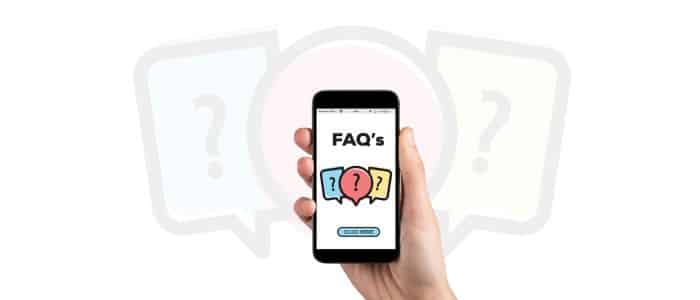
How long do lip fillers usually last?
Lip fillers, depending on the type and individual metabolism, generally last between 6 to 12 months. Over time, the body naturally breaks down the filler material, leading to a gradual decrease in volume. Regular touch-ups can help maintain the desired look.
Are there different types of lip fillers?
Yes, there are various types of lip fillers available, with hyaluronic acid-based fillers being the most popular. Other types include collagen-based fillers and those made from poly-L-lactic acid. Each type has its own set of benefits and longevity, so it’s essential to discuss with your practitioner to determine the best fit for your needs.
Can lip fillers be reversed?
Yes, one of the benefits of hyaluronic acid-based fillers is that they can be dissolved using an enzyme called hyaluronidase. If a patient is unhappy with the results or experiences complications, the filler can be broken down and absorbed by the body.
Will my lips feel different after getting fillers?
Initially, there might be a slight difference in the way your lips feel, especially when you touch them. However, as they heal and settle, they should feel natural. If the filler is correctly administered, others shouldn’t be able to tell by touch that you’ve had an enhancement.
Are there any long-term side effects of lip fillers?
While lip fillers are generally considered safe, especially when administered by a trained professional, there can be potential long-term side effects. These might include lumpiness, asymmetry, or scar tissue formation. It’s crucial to choose a reputable practitioner and follow post-procedure care guidelines to minimise these risks.
Medical References about Lip Fillers
Further Reading about Injectables with Consultant Plastic Surgeon Anca Breahna
- Read more about Dermal Fillers in Chester
- Read more about Skin Relaxing Injections
- Read more about Desirial Injections for Vaginal Dryness
- Read more about Aqualyx – Fat Dissolving Injections
- Read more about Lip Filler Maintenance: How Often Do You Need Touch-Ups?
